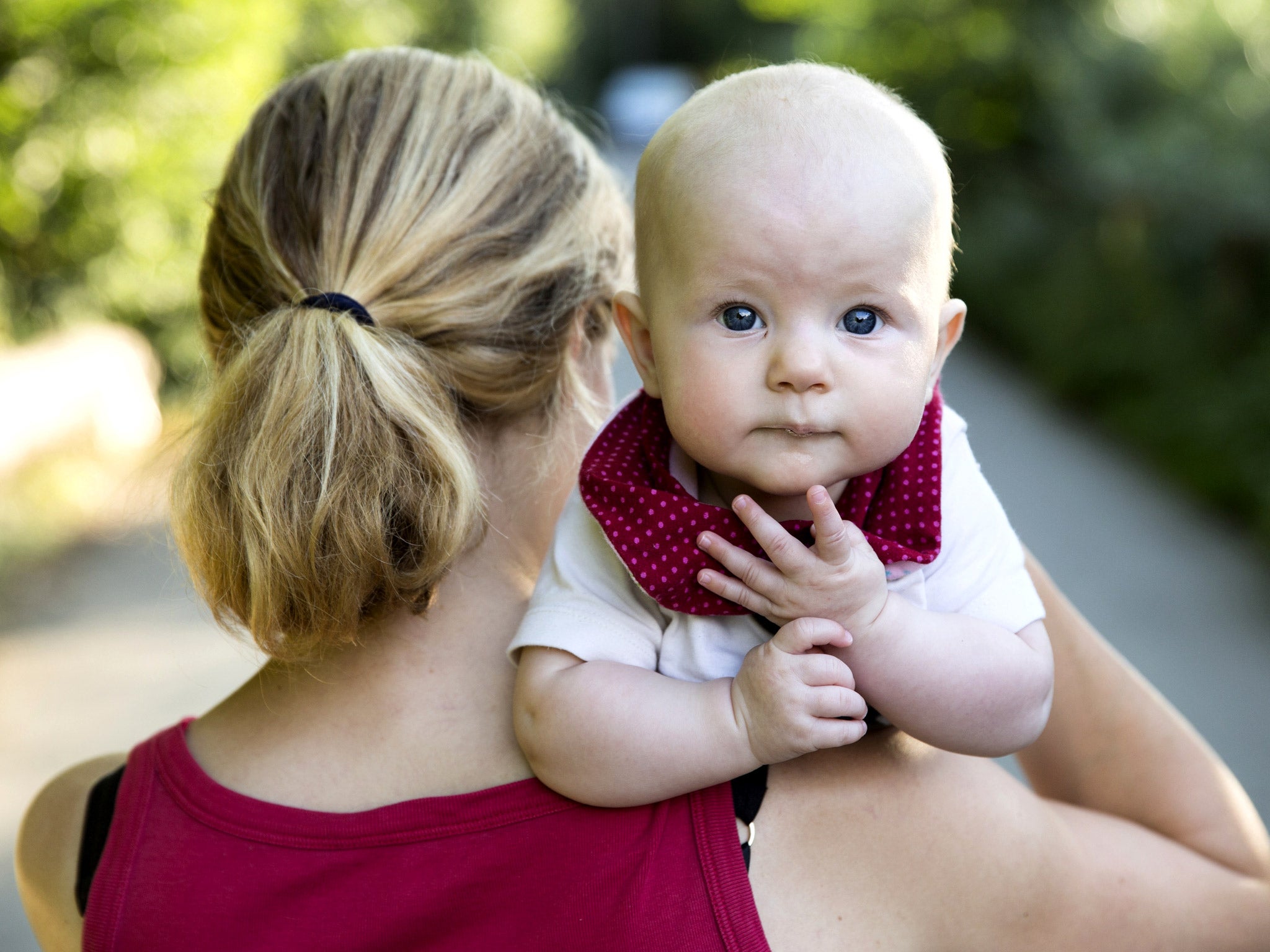Mother's ruin? 'Baby brain' is simply a way of preparing women for motherhood
So, 'baby brain' is real, psychologists say. Phew, says Charlotte Philby, but along with the mind fog, nature also gave mothers masterly powers of empathy and multi-tasking

Your support helps us to tell the story
From reproductive rights to climate change to Big Tech, The Independent is on the ground when the story is developing. Whether it's investigating the financials of Elon Musk's pro-Trump PAC or producing our latest documentary, 'The A Word', which shines a light on the American women fighting for reproductive rights, we know how important it is to parse out the facts from the messaging.
At such a critical moment in US history, we need reporters on the ground. Your donation allows us to keep sending journalists to speak to both sides of the story.
The Independent is trusted by Americans across the entire political spectrum. And unlike many other quality news outlets, we choose not to lock Americans out of our reporting and analysis with paywalls. We believe quality journalism should be available to everyone, paid for by those who can afford it.
Your support makes all the difference.Anyone who was listening carefully yesterday may have heard a collective sigh of relief from mothers across the land as news broke that "baby brain" is not only an actual thing – keep up, ladies – but that it is nature's way of helping women prepare for motherhood.
According to psychologists, who announced the results of their study at the British Psychological Society's annual conference yesterday, hormones activated during pregnancy help a woman fine-tune the intuition she requires to understand the needs of her infant.
Explaining how changes in the brain during pregnancy are designed to help mothers prepare, Dr Victoria Bourne, at Royal Holloway, University of London, said: "There are changes in how the brain processes facial emotions that ensure that mothers are neurologically prepared to bond with their babies at birth."
At first sight, these claims might seem surprising. As a mother of two young children, who regularly finds herself saying "oh what IS that word?", it is certainly reassuring.
Maternal amnesia definitely feels very real and rarely feels productive. It also seems to last rather a long time. Certainly among my mother friends, of the many things we miss about life before children, it is the loss of our brains we lament the most. (I often warmly recall the time a friend who'd recently had a baby told me she absent-mindedly brushed her teeth with haemorrhoid cream.)
And yet, is it really that surprising that when we are preparing to have a child, nature steps in to help us divert our attention away from certain areas and towards slightly more pressing matters such as learning to put someone else's needs before your own for at least the next 18 years? Or even that it can seem to last well after the baby's first months? What is more surprising, perhaps, is that we continue to punish ourselves for it, focusing on our personal shortcomings rather than giving ourselves a jolly good pat on the back for all that we have achieved.
In my experience, so-called maternal amnesia is almost always self-diagnosed and tends to come from women who are used to excelling in more tangible ways: those in high-flying jobs, or who travel the world. It is always the ones who I look at and think "how the hell does she manage it all?" who complain of befuddled brains while simultaneously recovering from physical traumas of birth and coping with sleep deprivation, (usually) remembering doctors' appointments, weigh-ins, play-dates, the supermarket shop, endless washing, older kids' parents' evenings, birthday presents, new shoes, show and tell, doctor's appointments, school lunch money, what's causing that rash... And often on top of a full or part-time job. All with little thanks.
While the rewards of parenthood are bountiful, they are also quiet. Rarely does a child look up at you and mutter, "thanks so much for spending the past three months going to our local swimming pool every night after work to see if there are any spaces in the swimming class, as they don't offer a waiting list". Or, "I really appreciate that you've chosen to take six months away from your job to look after me, despite the nagging fear that when you go back you will be short-changing me while your employer will probably have written you off for that promotion".
So really, the idea that what we begrudgingly dismiss as "baby brain" is actually our body's way of diverting attention to where it is needed most as we learn to re-prioritise in preparation for the responsibility of a new life and all that entails, shouldn't come as much of a shock. While we may lose the odd word, we've gained rather a lot of skills, not least multitasking, empathy and problem-solving. And that is good news for our children, our friendships – and our employers.
Join our commenting forum
Join thought-provoking conversations, follow other Independent readers and see their replies
Comments